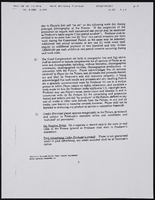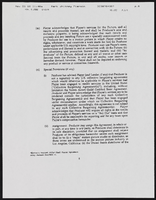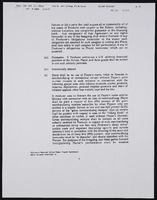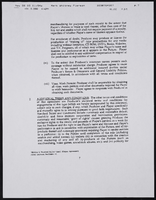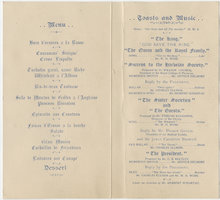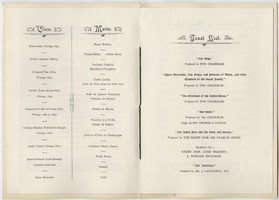Search the Special Collections and Archives Portal
Search Results
Hecht, Chic, 1928-2006
Nevada businessman and Republican politician Jacob "Chic" Hecht (1928-2006) was elected to the U.S. Senate in November 1982. As a senator, he used quiet diplomacy skills to help Soviet Jews gain permission to emigrate. During the Korean War, Hecht served as a counterintelligence agent in Berlin. After the war he moved to Las Vegas, Nevada and operated several businesses. Hecht also represented Clark County in the Nevada State Senate for eight years.
Person
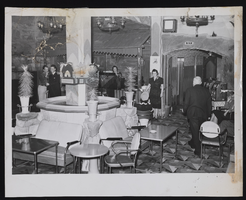
Photograph of the Horseshoes Hotel and Casino interior, Las Vegas (Nev.), 1940-1959
Date
Archival Collection
Description
An interior view of the Horseshoe Hotel & Casino. Guests and staff sit and stand around the room. There are slot machines near the bar entrance and a man appears to be singing to the left. The stamp on back of photo says, "Vegas Studio & Camera Supply 116 Fremont Street Las Vegas, Nevada."
Image
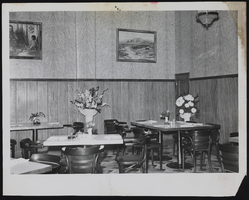
Photograph of table settings inside a Horseshoe Casino restaurant, Las Vegas (Nev.), 1940-1959
Date
Archival Collection
Description
A photograph of a coffee shop or restaurant inside the Horseshoe Club Casino. The tables are set with napkins and silverware, salt, pepper, and what looks like a sugar bowl. Paintings hang from the walls. The stamp on back of photo says, "Vegas Studio & Camera Supply 116 Fremont Street Las Vegas, Nevada."
Image

Photograph of $1 million dollars displayed inside the Binion's Horseshoe, Las Vegas, Nevada, approximately 1960 to 1979
Date
Archival Collection
Description
Million dollar cash display at Binion's Horseshoe, Las Vegas. One hundred $10,000 bills are encased in bullet-proof glass and hang inside an 8 foot, 2,000 pound golden horseshow. Visitors could have their photograph taken in front of the display. (c. 1960s-70s). Stamp on back of photo: "Las Vegas News Bureau Las Vegas, Nevada Convention Center".
Image

